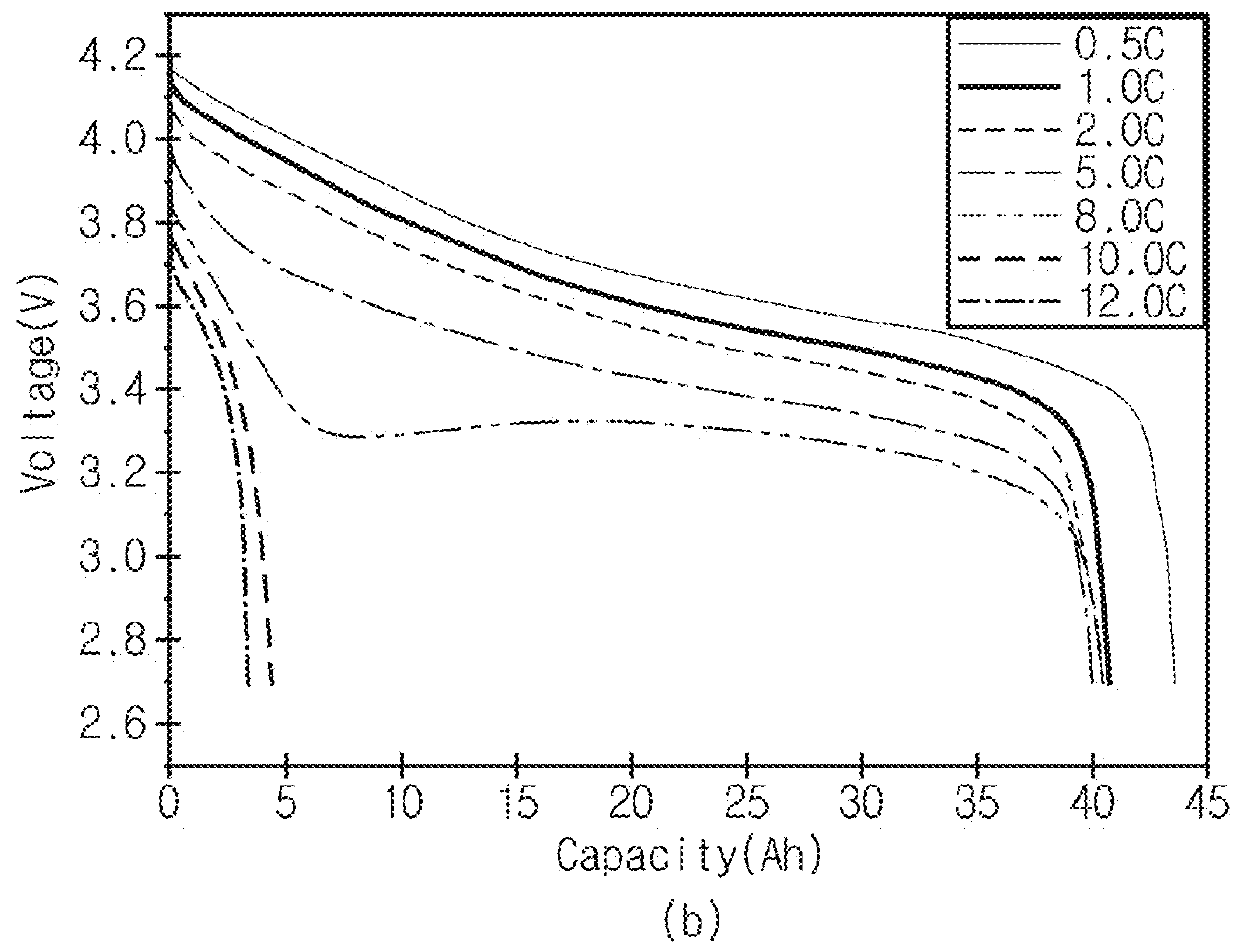Lithium secondary battery
a secondary battery and lithium technology, applied in the field of lithium secondary batteries, can solve the problems of reducing the energy density of the battery, consuming lithium ions, and deteriorating cycle characteristics, and achieve the effects of improving electrical performance and long-term cycle characteristics, effectively enhancing battery safety, and reducing the decomposition reaction of an electrolyte solution
- Summary
- Abstract
- Description
- Claims
- Application Information
AI Technical Summary
Benefits of technology
Problems solved by technology
Method used
Image
Examples
example 1
Manufacture of Cathode and Anode
[0052]A core-shell cathode active material was prepared by a dry coating method using 2 parts by weight of olivine-type iron phosphate lithium (LiFePO4) having an average particle diameter of 1 μm, 0.1 parts by weight of TiO2, and 0.3 parts by weight of Super-P, based on 100 parts by weight of LiNi5Co2Mn3O2 having an average particle diameter of 10 μm.
[0053]A core-shell anode active material was prepared by a dry coating method using 2 parts by weight of lithium titanium oxide (Li4Ti5O12) having an average particle diameter of 1 μm, 0.1 parts by weight of TiO2, and 0.5 parts by weight of Super-P, based on 100 parts by weight of mesophase graphite powder (MGP) having an average particle diameter of 20 μm.
[0054]NOB-130 (Hosokawa Micron Corp., Japan) was used as a dry coating system. TiO2 was used to improve the coating performance, and Super-P was used to enhance the conductivity.
[0055]The prepared cathode active material was mixed with a conductive car...
example 2
[0063]A battery was manufactured by the same method as that of Example 1, except that mesophase graphite powder having an average particle diameter of 20 μm was used as an anode active material.
example 3
[0064]A battery was manufactured by the same method as that of Example 1, except that LiNi5Co2Mn3O2 having an average particle diameter of 10 μm was used as a cathode active material.
PUM
| Property | Measurement | Unit |
|---|---|---|
| thickness | aaaaa | aaaaa |
| thickness | aaaaa | aaaaa |
| thickness | aaaaa | aaaaa |
Abstract
Description
Claims
Application Information
 Login to View More
Login to View More - R&D
- Intellectual Property
- Life Sciences
- Materials
- Tech Scout
- Unparalleled Data Quality
- Higher Quality Content
- 60% Fewer Hallucinations
Browse by: Latest US Patents, China's latest patents, Technical Efficacy Thesaurus, Application Domain, Technology Topic, Popular Technical Reports.
© 2025 PatSnap. All rights reserved.Legal|Privacy policy|Modern Slavery Act Transparency Statement|Sitemap|About US| Contact US: help@patsnap.com



